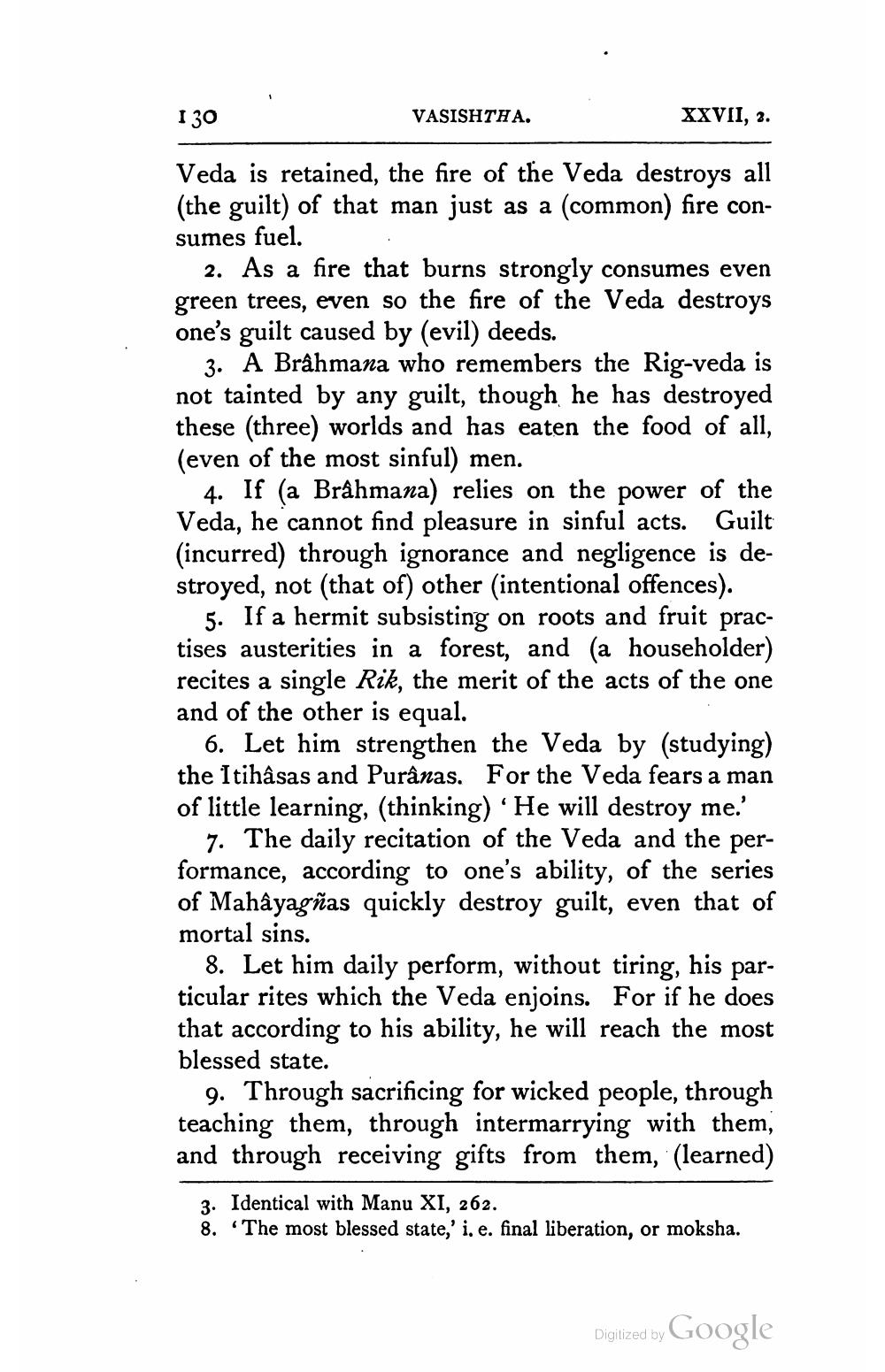________________
130
VASISHTHA.
XXVII, 3.
Veda is retained, the fire of the Veda destroys all (the guilt) of that man just as a common) fire consumes fuel.
2. As a fire that burns strongly consumes even green trees, even so the fire of the Veda destroys one's guilt caused by (evil) deeds.
3. A Brâhmana who remembers the Rig-veda is not tainted by any guilt, though he has destroyed these (three) worlds and has eaten the food of all, (even of the most sinful) men.
4. If (a Brahmana) relies on the power of the Veda, he cannot find pleasure in sinful acts. Guilt (incurred) through ignorance and negligence is destroyed, not (that of) other intentional offences).
5. If a hermit subsisting on roots and fruit practises austerities in a forest, and (a householder) recites a single Rik, the merit of the acts of the one and of the other is equal.
6. Let him strengthen the Veda by (studying) the Itihâsas and Purânas. For the Veda fears a man of little learning, (thinking) 'He will destroy me.'
7. The daily recitation of the Veda and the performance, according to one's ability, of the series of Mahầyagñas quickly destroy guilt, even that of mortal sins.
8. Let him daily perform, without tiring, his particular rites which the Veda enjoins. For if he does that according to his ability, he will reach the most blessed state.
9. Through sacrificing for wicked people, through teaching them, through intermarrying with them, and through receiving gifts from them, (learned)
3. Identical with Manu XI, 262. 8. The most blessed state,' i.e. final liberation, or moksha.
Digitized by Google




